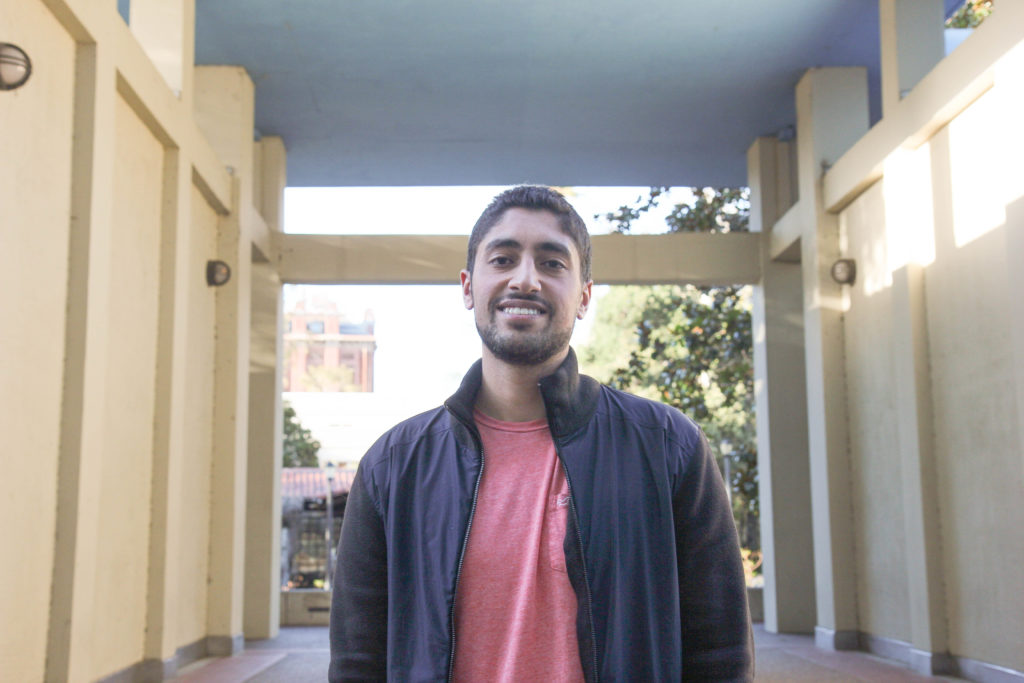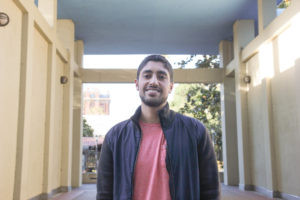
 On Jan. 31 two UC Berkeley alumni held a pre-sale for SPN tokens, a type of blockchain token that’s required to access a new social media platform they created. In two hours, people had bought $12 million dollars worth of it.
On Jan. 31 two UC Berkeley alumni held a pre-sale for SPN tokens, a type of blockchain token that’s required to access a new social media platform they created. In two hours, people had bought $12 million dollars worth of it.
So why did their new social network, Sapien, create such a buzz? One of the biggest reasons, according to Sapien CEO and co-founder Ankit Bhatia, is that its basis in blockchain technology has created a new, more democratized infrastructure for social media networks. He says that this new infrastructure could help protect people’s privacy, give users a cut of ad revenue and put an end to fake news.
Bhatia was invited to the Sutardja Center for Entrepreneurship and Technology’s Challenge Lab class on Blockchain last week to talk about his journey with Sapien and explain how this new kind of social media works. He told UC Berkeley students about how the project grew out of his friendship with co-founder Robert Giometti and their mutual frustration with the current state of social media platforms.
“We would be coming back from parties, talking about how we were upset about Facebook exploiting data,” Bhatia said.
In 2016, they decided that rather than continue debating the future of social media, they’d make a new future themselves. So they started coding a new platform to fix the problems that frustrated them about existing social networks.
With other social media networks like Facebook, Reddit, Twitter and LinkedIn, all user data, including every time you “like” a post, “upvote” a comment or send a direct message, is stored on the platform’s central servers. This system allows companies to collect information about you that can help them to provide you with targeted ads, but it also means that if a hacker finds a way to compromise one of those servers, thousands of people’s sensitive personal information can be leaked.
Sapien’s promised blockchain-based infrastructure, however, allows users to bypass interacting with a central server. The network is built on Ethereum, a blockchain-based computing platform, which uses a peer-to-peer network. In this type of network, information is stored across a number of computers rather than in just a few central servers.
“Instead of going to one point for data, the data is distributed among everyone,” Bhatia said. “You can send a message to someone else without interacting with a central authority.”
As a result, there’s no central targets for hackers and “no one point of failure,” because information is stored across several different devices.
Users can also rest easy, knowing that personal information about them isn’t automatically being collected by Sapien and stored. If they so choose, however, users can turn on ads and allow data collection from their account –– with an incentive. At least 50 percent of the revenue that Sapien earns from the advertisers will be directed back to the user in the form of SPN tokens.
“We’re distributing the wealth back to the people for opting in and giving their personal data,” Bhatia said.
Bhatia also explained to students at the class why he thinks the token format of Sapien will help to prevent internet trolls and the spread of fake news.
Users need to initially “stake,” or hold, the equivalent of $20 in SPN tokens in order to use the platform, which helps to put something at risk if a user posts illegal content, for example.
Bhatia said that he thinks this format will also prevent Sapien from having the “bot” accounts that are common on platforms like Twitter, because there will be a financial consequence to keep remaking accounts after being deleted for posting spam.
On the other hand, people on Sapien can also use the tokens to reward or “tip” people who post good content, incentivizing thoughtful articles and blog posts on the platform.
To Bhatia, the possibilities for this new type of social media network are endless and could completely change the way that people interact with each other online. In a final word of advice while speaking at the Blockchain Challenge Lab class, he encouraged UC Berkeley students to start their own projects that they think could make the world a better place.
“Go for the ambitious stuff,” Bhatia said. “Try doing things that are more meaningful… Projects that can be a win-win for everyone.”
The Blockchain Lab at the Sutardja Center for Entrepreneurship & Technology is currently investigating unresolved technical and policy challenges preventing the technology from being widely adopted. We will be awarding funding for projects (see announcement on 3/10/18 on our Blockchain Lab site) and are seeking a research director.
